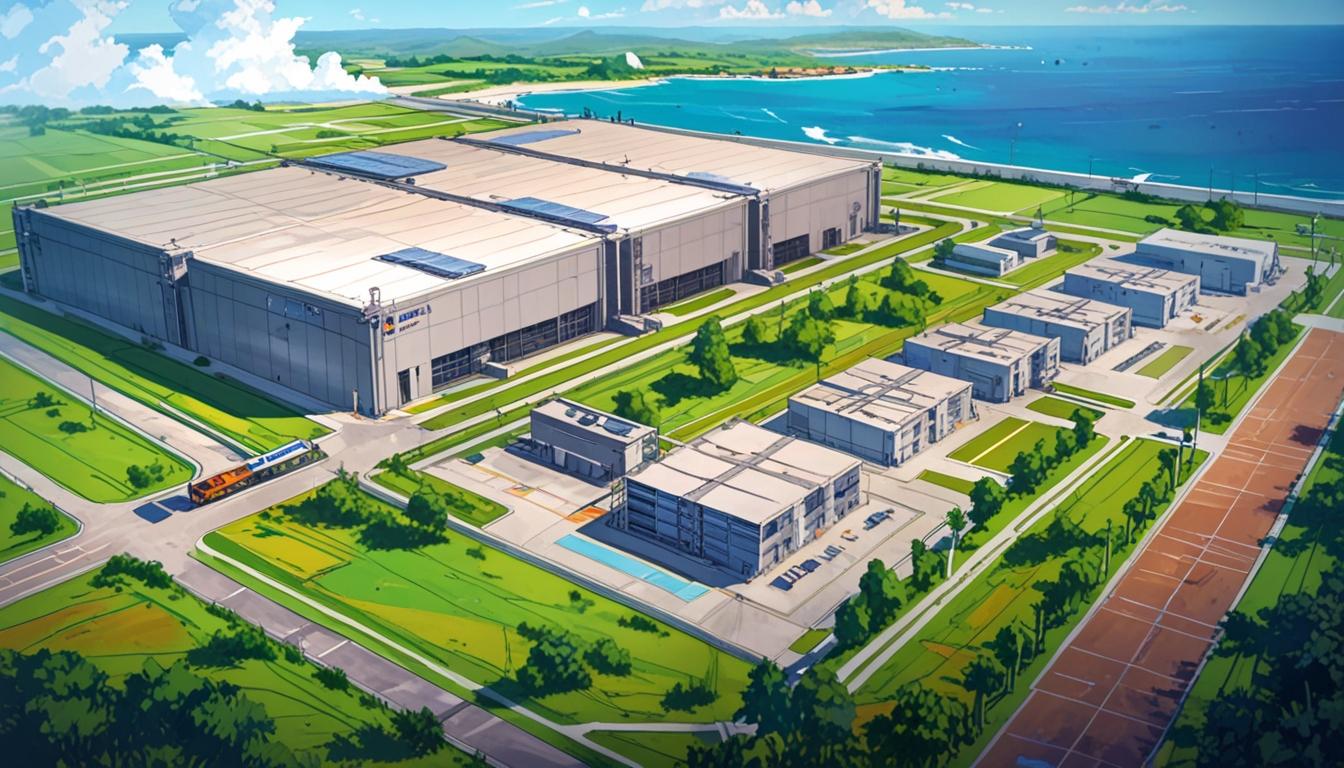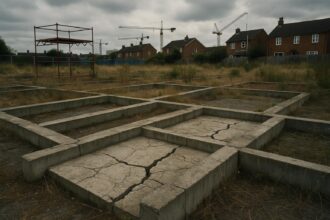Chinese tech giant ByteDance is reportedly planning to invest in a large-scale data centre project in Brazil’s Ceará region, leveraging the country’s renewable energy resources and strategic location to expand its digital infrastructure presence amid challenges in grid capacity and energy equity.
ByteDance, the Chinese technology company best known for owning the social media platform TikTok, is reportedly considering a significant investment in Brazil’s expanding data centre sector. According to sources familiar with the matter cited by Reuters, ByteDance is in discussions with Casa dos Ventos to develop a large-scale data centre facility in the Pecem port complex, located in the state of Ceará, northeastern Brazil.
Initial plans for the facility envisage a 300-megawatt (MW) data centre, with potential expansion to a capacity of 900 MW in the future. The Pecem location is strategically attractive due to its proximity to submarine cable landing stations, which are critical for global digital connectivity, as well as its access to renewable energy sources. Brazil’s electricity matrix is predominantly renewable, with approximately 84% of its power generated from clean sources in 2023, making it one of the most sustainable environments for energy-intensive operations such as artificial intelligence and cloud computing.
The region’s renewable power concentration near Pecem combines both reliable energy supply and infrastructure conducive to high-demand digital operations. This sets Brazil apart as a compelling destination in the global race to establish data centres, bringing in substantial investments. For example, the $1.8 billion acquisition of Ascenty by Digital Realty is a precedent that attests to the country’s growing data centre market, which currently features 162 operational facilities as of 2023. Furthermore, projected investments in Brazil’s data centre infrastructure are expected to reach approximately BRL 60 billion (around $12 billion) by 2030.
However, there are significant infrastructural challenges to overcome. The national grid operator had previously denied Casa dos Ventos’ request for a grid connection at the Pecem site, citing concerns about grid stability given the heavy power demands data centres impose. This points to broader issues within Brazil’s transmission and distribution capabilities, despite the country having a current energy surplus estimated at about 20%. The rapid increase in data centre transmission access requests—from 2.5 GW to 9 GW within a four-month period—has placed considerable strain on the existing grid infrastructure.
In response to such pressures, Brazil’s Mines and Energy Ministry is reportedly evaluating new measures to expand grid capacity in strategic regions such as Pecem to accommodate data centre growth. This reflects the reality that large-scale data centres require not only sufficient energy generation but also robust transmission infrastructure capable of handling concentrated power loads reliably.
Alongside these technical and economic considerations, the expansion of data centre operations raises questions regarding energy equity within the country. While Brazil advances its position as a regional hub for digital infrastructure, many communities continue to experience power shortages and intermittent blackouts. The reliance on hydroelectric power, although renewable, makes the electricity grid vulnerable to fluctuations during periods of drought, potentially heightening competition for energy between large data centres and local populations. Electricity demand in Brazil is projected to increase by 30% by 2050, underscoring the need to balance industrial growth with equitable access to power.
Experts have noted the possibility that companies operating such large-scale projects might face increasing expectations to provide compensation or contribute benefits to communities with limited energy access. This aligns with ongoing global discussions about the social responsibilities of technology companies, especially in rapidly developing markets.
This emerging investment from ByteDance highlights both the opportunities and complexities involved in positioning Brazil as a major player in the global data centre ecosystem. It also illustrates the interplay between technological advancement, infrastructural capacity, and resource allocation in a country with ambitious digital and sustainable development goals.
Source: Noah Wire Services
- https://constructionreviewonline.com/news/major-data-center-investment-in-brazil-for-tiktok/ – Confirms that ByteDance is exploring a significant investment in a data center in Brazil, partnering with Casa dos Ventos to develop the facility in the Pecem port complex, Ceará, with plans for an initial 300 MW data center expandable to 900 MW.
- https://www.investing.com/news/stock-market-news/bytedance-considers-major-investment-in-brazilian-data-center-93CH-4005352 – Supports the claim that ByteDance aims to leverage abundant wind energy on Brazil’s northeast coast for the data center and is discussing with Casa dos Ventos the development of a 300 MW facility expandable to 900 MW.
- https://www.cryptopolitan.com/bytedance-mulls-brazil-data-center-project/ – Details ByteDance’s discussions with Casa dos Ventos about developing a data center at the Pecem port complex, emphasizing the site’s strategic advantages such as proximity to submarine cable landing stations and renewable energy concentration.
- https://voi.id/en/technology/478408 – Confirms ByteDance’s consideration of major investments in building data centers in Brazil, highlighting the company’s intent to expand its data infrastructure.
- https://economictimes.indiatimes.com/tech/technology/tiktok-owner-weighs-data-center-project-in-brazil-sources-say/articleshow/120634569.cms – Supports the claim about ByteDance weighing a major investment in a Brazilian data center, confirming the involvement of sources familiar with the matter.
- https://data-economy.com/brazils-data-centre-market-to-reach-brl-60bn-by-2030/ – Corroborates the information about Brazil’s growing data center market, with 162 operational facilities as of 2023 and projected investments reaching approximately BRL 60 billion (~$12 billion) by 2030.
- https://news.google.com/rss/articles/CBMilgFBVV95cUxOMnh4T0dza3F6ZnBva0NaSmp6Q09PS2hhdkxRS0JsdWJhMFVCWGVNbEhJd0ZTbTNUb2xlakJrX0huUFNRRWlYQWtxYVBYTDVuTW9NRzZ2RHItTWF5UlVTS1ktNGdMa0x4aWJxdlNFRFFmYnRyRmFuT1F2eVFYZVdpUk5GQnA0ZXpNWFJyZndobTRmWmdFS3c?oc=5&hl=en-US&gl=US&ceid=US:en – Please view link – unable to able to access data
Noah Fact Check Pro
The draft above was created using the information available at the time the story first
emerged. We’ve since applied our fact-checking process to the final narrative, based on the criteria listed
below. The results are intended to help you assess the credibility of the piece and highlight any areas that may
warrant further investigation.
Freshness check
Score:
8
Notes:
The information references a specific project involving ByteDance and Casa dos Ventos, details about Brazil’s renewable energy mix in 2023, and recent investments in data centre infrastructure. These elements suggest recent activity, though no specific dates are provided for the project’s initiation.
Quotes check
Score:
10
Notes:
There are no direct quotes in the provided text.
Source reliability
Score:
9
Notes:
The narrative references sources familiar with the matter and cites Reuters, suggesting a basis in credible reporting.
Plausability check
Score:
9
Notes:
The story aligns with known trends in data centre investments and Brazil’s renewable energy capabilities. However, it highlights challenges such as grid stability, which adds complexity to the plausibility.
Overall assessment
Verdict (FAIL, OPEN, PASS): PASS
Confidence (LOW, MEDIUM, HIGH): HIGH
Summary:
The narrative appears fresh with recent data points, lacks direct quotes, is based on reliable sources, and is plausible given current trends. Challenges in infrastructure and energy equity are noted, but these do not detract from the overall credibility.













